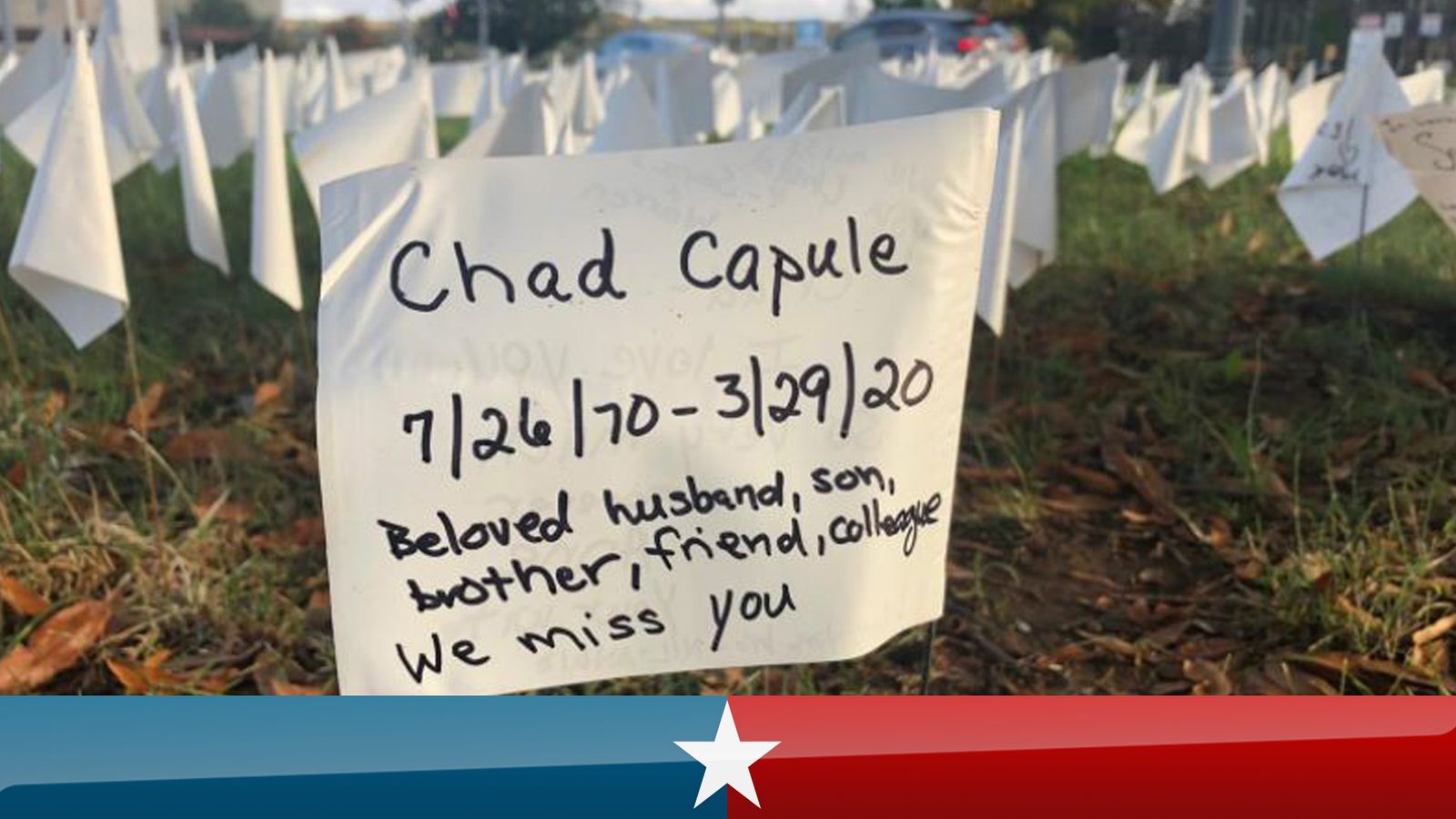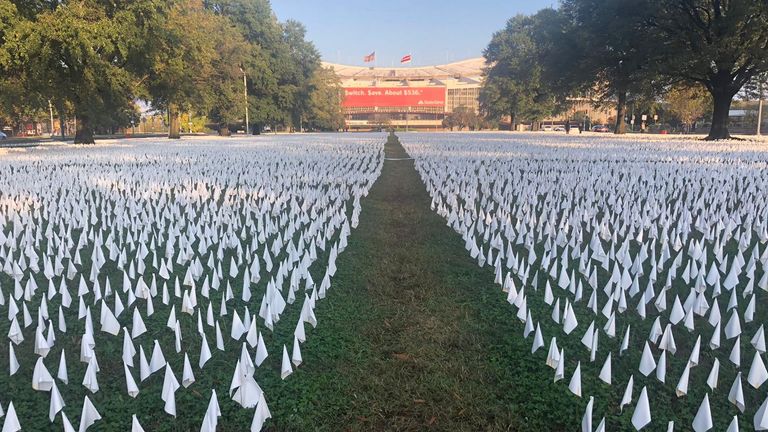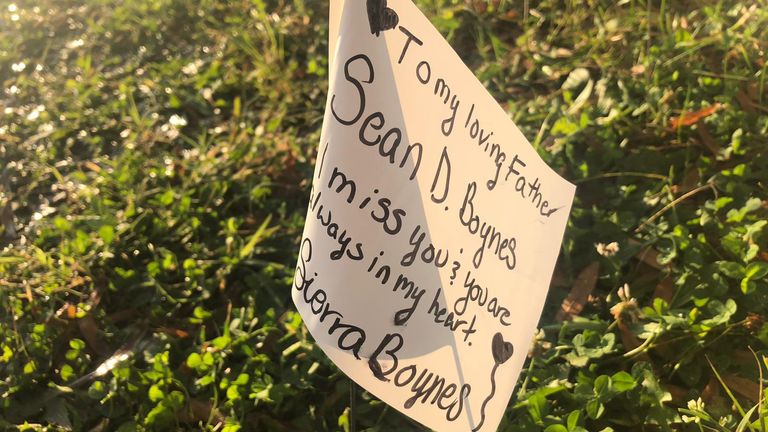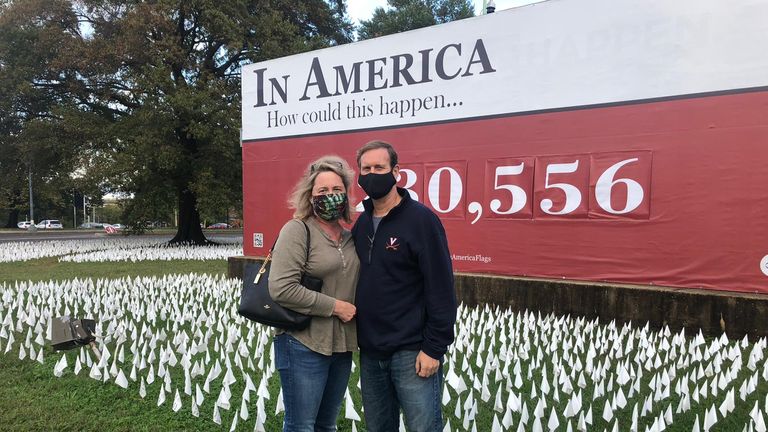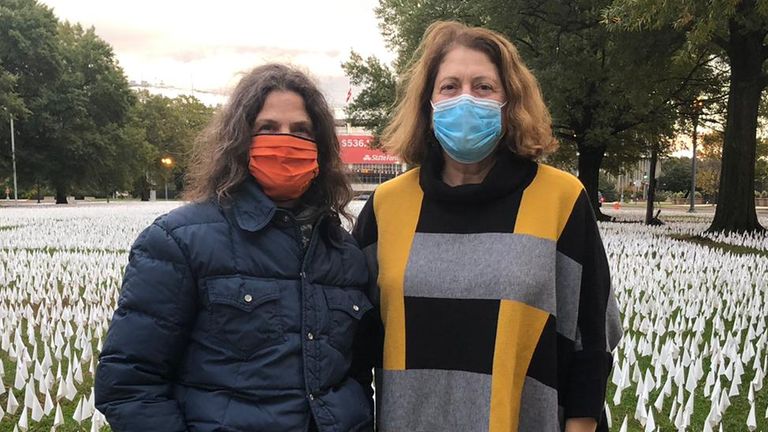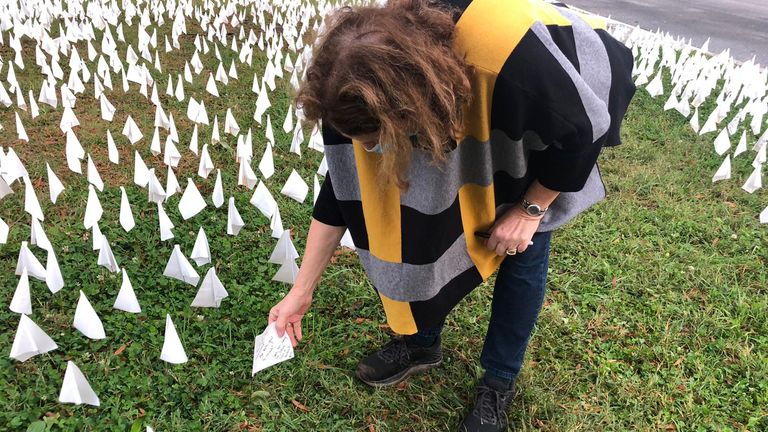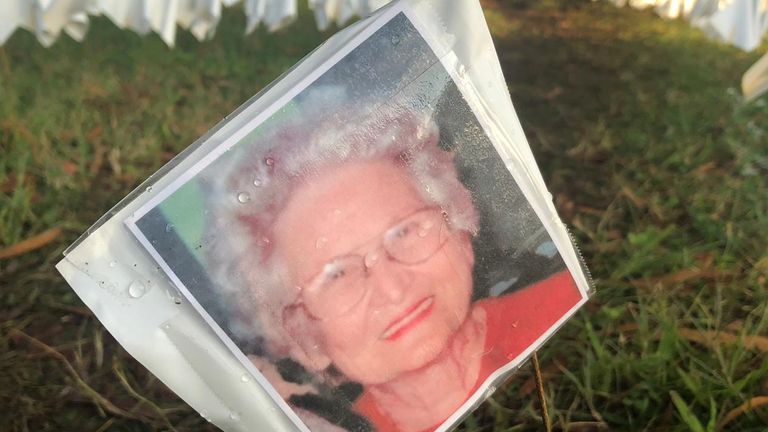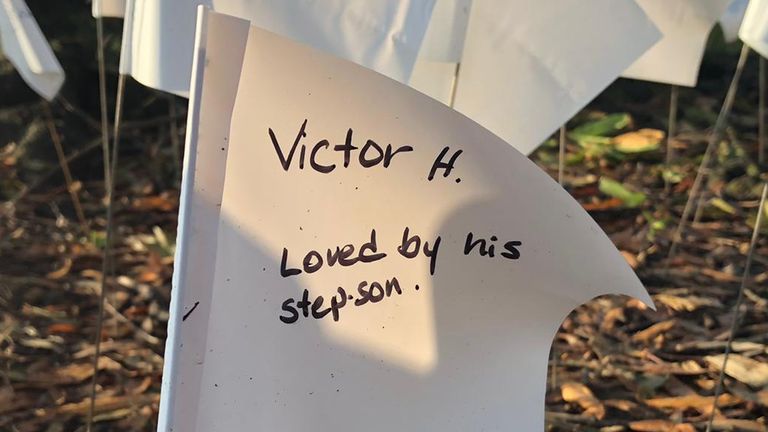“Dear Joe, thanks for the memories. We miss you so much.”
“Ricky Taylor – we will tell your story, love you dad.”
“Jose Angel Ciaz Rodriguez – papu we miss you.”
Fluttering in the autumn wind, these are just some of the messages grieving friends and relatives have written on 230,000 white flags planted in memory of coronavirus victims.
The epitaphs roll far down a grassy park in southwest Washington DC, adorned with a sign showing the US death toll during the pandemic – 230,556 – that asks visitors: “In America, how could this happen?”
“I’m still trying to catch up from yesterday’s deaths being planted,” artist Suzanne Brennan Firstenberg sighs, as she dashes around handing out more flags.
She and a handful of volunteers look after the temporary art installation, wading through the muddy trenches of this otherwise ordinary park lying in the shadow of a dilapidated baseball stadium and the National Guard headquarters.
Names of the deceased from as far as California on the west coast are filling the expanse of white, scribbled along with hearts or drawings.
Among those here to pay their respects is Betsy Withycombe.
The 52-year-old self-described “suburban mom” from Arlington, Virginia, is here to write on a flag for her father, Sam Corl, who died with the virus on 27 August.
“One of the things that is really distressing to me is he was a particularly formal man to whom it was important that he dress well,” she tells me.
“I asked about his passing because typically one is allowed to go and dress a body before cremation or burial and in this case we were not, because of COVID.
“So he was cremated in his hospital gown. That’s very upsetting to me.”
She had to drive for 12 hours to scatter his ashes with her youngest child, with no break, for fear of catching COVID.
Two sisters, Lori and Juli Cooper, are here to remember their friend Joe – who escaped contracting coronavirus despite two hospital admissions during the pandemic but caught it a third time and died in May.
They describe an AIDS-survivor in his 70s who was a loving home-maker to husband Gary and known for his “ladybird parties”.
“It’s sad to not be able to say goodbye,” Lori says.
“We join all the other people who’ve lost someone in mourning that aspect of not really being able to have closure. But he left us with some wonderful memories.”
And Jean, a real estate worker from Virginia Beach, is here to honour a relative she only recently discovered but never got to meet.
She had used a genealogy site to track down a cousin, whose father died with COVID, and is one of three people she knows who have passed away with the virus.
This is one of the few parts of the city not decorated with blue and red campaign signs ahead of the US election but everyone is keen to talk politics.
“I think this administration’s response to the pandemic has been a total and complete failure,” says Betsy.
“So many of these deaths have been excess, and have been preventable – that actually is the sad truth of it,” Lori adds.
And the sight of all the flags “will tell some people that our administration really seems to have given up on us”, says organiser Suzanne.
But although there is anger about the political decisions that may have led to these deaths, she says the installation is bringing people together.
“The other day I saw a man who is deaf, through his interpreter, console a complete stranger who had lost his uncle only the day before,” the 61-year-old former hospice volunteer tells me.
“So strangers are coming together and we’re seeing that we can unite. If not in our politics, at least in our grief.”
